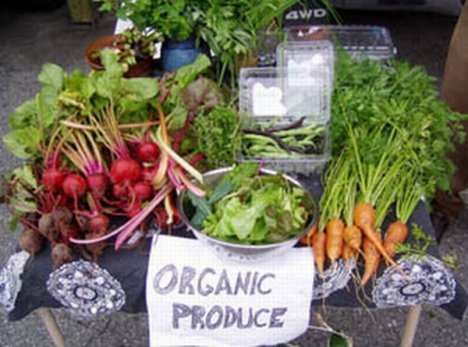美國斯坦福大學的一組研究人員對200多項有關(guān)有機食品和非有機食品的對比研究分析后發(fā)現(xiàn),有機食品雖然可以讓消費者接觸到更少的農(nóng)藥,但其營養(yǎng)價值并不像人們想象的那么明顯。該研究分析了17個食用有機食品和未食用有機食品的人類對比研究,還對223個有關(guān)水果、蔬菜、谷物、肉類、牛奶和雞蛋有機和無機產(chǎn)品營養(yǎng)價值、細菌及農(nóng)藥含量的對比研究進行了分析。因上述人類研究持續(xù)時間均不超過兩年,研究人員無法對長期實驗結(jié)果得出結(jié)論。在食品類的對比研究分析中,研究人員發(fā)現(xiàn)有機和無機蔬果中的維生素含量相近,牛奶中的蛋白質(zhì)和脂肪含量也接近。有少數(shù)研究顯示有機牛奶中不飽和脂肪酸(omega-3)的含量較高。研究人員表示,有機食品中的氮含量的確高于普通食品,不過這可能與肥料及收獲時食品的成熟度有關(guān),而且氮含量高的食品并沒有任何保健價值。

 |
|
Eating organic food will not make you healthier, according to researchers at Stanford University, although it could cut your exposure to pesticides. |
Eating organic food will not make you healthier, according to researchers at Stanford University, although it could cut your exposure to pesticides.
They looked at more than 200 studies of the content and associated health gains of organic and non-organic foods.
Overall, there was no discernible difference between the nutritional content, although the organic food was 30% less likely to contain pesticides.
Critics say the work is inconclusive and call for more studies.
The research, published in the journal Annals of Internal Medicine, looked at 17 studies comparing people who ate organic with those who did not and 223 studies that compared the levels of nutrients, bacteria, fungus or pesticides in various foods - including fruits, vegetables, grains, meats, milk and eggs.
None of the human studies ran for longer than two years, making conclusions about long-term outcomes impossible. And all of the available evidence was relatively weak and highly variable - which the authors say is unsurprising because of all the different variables, like weather and soil type, involved.
Fruit and vegetables contained similar amounts of vitamins, and milk the same amount of protein and fat - although a few studies suggested organic milk contained more omega-3.
Organic foods did contain more nitrogen, but the researchers say this is probably due to differences in fertilizer use and ripeness at harvest and is unlikely to provide any health benefit.
Their findings support those of the UK's Food Standards Agency, which commissioned a review a few years ago into organic food claims.
Prof Alan Dangour, of the London School of Hygiene and Tropical Medicine, who carried out that work, said: "Consumers select organic foods for a variety of reasons, however this latest review identifies that at present there are no convincing differences between organic and conventional foods in nutrient content or health benefits.
"Hopefully this evidence will be useful to consumers."
Dr Crystal Smith-Spangler, the lead author of the latest review, said there were many reasons why people chose to eat organic, including animal welfare or environmental concerns.
"Some believe that organic food is always healthier and more nutritious. We were a little surprised that we didn't find that.
"There isn't much difference between organic and conventional foods, if you're an adult and making a decision based solely on your health."
But the Soil Association said the study was flawed.
"Studies that treat crop trials as if they were clinical trials of medicines, like this one, exaggerate the variation between studies, and drown out the real differences.
"A UK review paper, using the correct statistical analysis, has found that most of the differences in nutrient levels between organic and non-organic fruit and vegetables seen in this US study are actually highly significant."
A Department of Health spokeswoman said: "Evidence has not yet emerged that there are nutritional benefits from eating organically produced foods compared to conventionally produced foods. We will continue to review research on this subject."
The study was funded by Stanford University.
相關(guān)閱讀
(Agencies)

(中國日報網(wǎng)英語點津 Helen)
